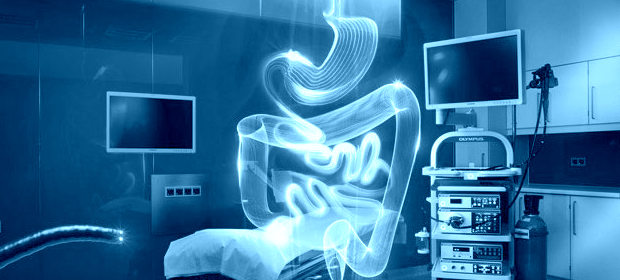Diagnostics
“All our knowledge has its origins in our perceptions.”
Leonardo da Vinci (1452 – 1519)
At the beginning of the last century, the great British physician Lord Moyniham (1865-1936) claimed that the majority of patients with problems caused by digestive disorders can be diagnosed only on the basis of their symptoms.Although this is stated a century ago, an adequate history even today represents the basis of accurate and precise diagnosis.Nevertheless, as the symptoms in diagnostics of benign diseases of the foregut have low sensitivity and specificity, therefore definitive diagnosis must be based on careful anatomical and physiological diagnostic studies.The symptoms of the disease such as heartburn, regurgitation, pain behind the breastbone and epigastric pain, are often nonspecific and occur in many diseases, not only the esophagus, stomach and duodenum, but also in diseases of the heart, lung or colon.These symptoms often display no obvious anatomical or histological disorder. On the other hand symptoms can be atypical, such as cough or hoarseness, which can indicate the disease in completely different, distant organs.Using only the symptoms in the diagnosis, even if the symptoms are typical, can often lead to the wrong diagnosis.
Implementation of objective and accurate diagnostics, which is able to explain the anatomical and physiological causes of the benign diseases of the foregut, represents an imperative before starting treatment and is essential for the following reasons:
- understanding of the pathophysiology of the disease,
- to confirm the diagnosis,
- appropriate choice of therapy and the surgical procedure itself,
- avoidance of any intra and postoperative complications and
- objective assessment of the treatment.
All diagnostic procedures of the benign diseases of the foregut can be classified as structural and functional.While abdominal ultrasound, upper GI series and endoscopy provide information on the structural characteristics of the disease, only specialized functional esophageal diagnostics is able to define the cause of the pathophysiological functions of the esophagus and/or stomach, and displays an accurate picture of the disease.All these diagnostic procedures are mutually complementary and their overall performance is necessary in order to establish accurate and precise diagnosis.On the other hand, adequate diagnostics undertaken after the medical or operative treatment gives a clear and accurate insight into the success of the treatment.
Diagnostics
- Medical History
- Abdominal Ultrasound
- Upper GI Series
- Upper GI Endoscopy
- Esophageal Manometry
- Esophageal 24-Hour pH Metry
- Esophageal 24-Hour pH Impedance
Lexicon
Patients Informations
Soon
If you have more questions contact us:
info@refluxcentar.com

 српски
српски

